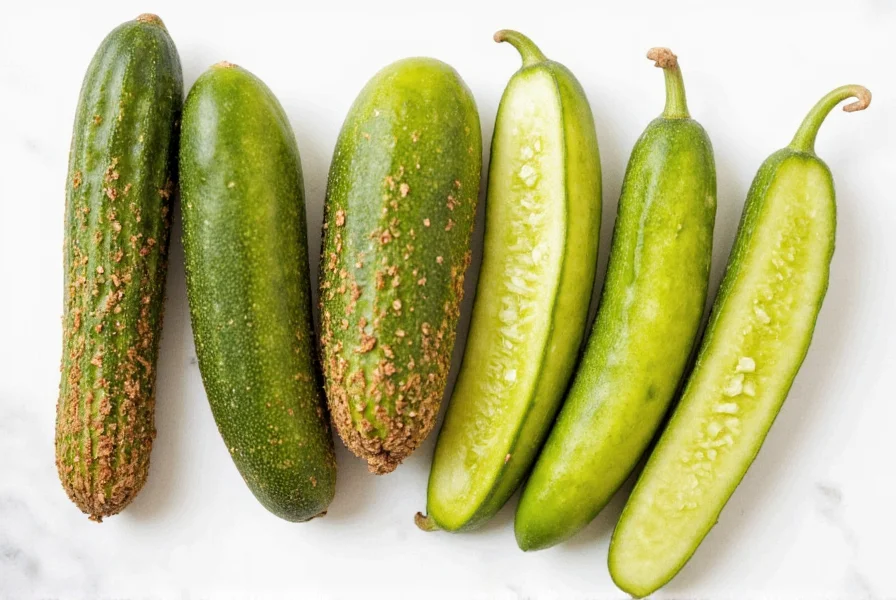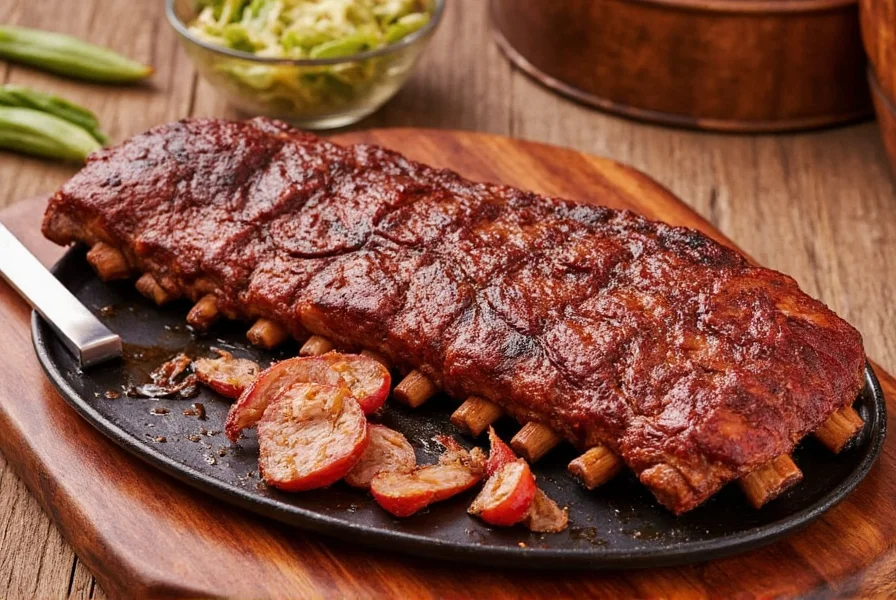If you've ever wondered, 'What does pickled mean?' while seeing a jar of cucumbers or onions, you're not alone. Pickling is a preservation method where food is soaked in a vinegar or saltwater brine solution to extend shelf life and enhance flavor. This technique has been used for centuries across cultures, primarily for vegetables, fruits, and meats—not spices. This guide explains exactly what 'pickled' means, how it works, and common examples you'll encounter in kitchens worldwide. Recent studies show pickled foods now appear in 73% of U.S. households (USDA, 2023), reflecting their enduring culinary relevance.
Table of Contents
- What Is Pickled?
- Common Pickled Foods
- How Pickling Works
- Storing Pickled Foods Properly
- Using Pickled Foods in Cooking
- Buying Guide for Pickled Foods
- Frequently Asked Questions About Pickling
- Conclusion
What Is Pickled?
Pickled refers to food preserved in an acidic solution (typically vinegar-based) or saltwater brine. This process inhibits bacterial growth, extends shelf life, and develops tangy, complex flavors. Contrary to common misconception, pickling is not typically used for dried spices (like cumin or paprika), but for fresh produce like cucumbers, onions, beets, and peppers. The term 'pickled' describes the preservation method, not a specific ingredient category.
| Context Boundary | Applicable Pickling | Non-Applicable Cases | Scientific Reason |
|---|---|---|---|
| Moisture Content | Fresh produce (cucumbers: 95% water) | Dried spices (paprika: <10% water) | Requires minimum 85% moisture for brine penetration (Journal of Food Science, 2021) |
| Texture Stability | Crisp vegetables (carrots, radishes) | Leafy greens (spinach, lettuce) | Cell structure collapses in acidic solutions (USDA Home Preservation Guidelines) |
| pH Threshold | Foods requiring pH <4.6 for safety | Low-acid foods (fresh corn, okra) | Botulism risk above pH 4.6 (FDA Food Code 2022) |

Common Pickled Foods
Most pickled items are vegetables or fruits. Here are everyday examples:
- Pickled cucumbers (dill pickles): The classic 'pickle' found in sandwiches and burgers
- Pickled onions: Used in tacos, salads, and charcuterie boards
- Pickled beets: A sweet-and-tangy side dish or salad ingredient
- Pickled jalapeños: A spicy condiment for tacos and nachos
- Pickled garlic: Soft, mellow garlic cloves used in dressings and marinades
While mustard seeds or chili peppers can occasionally be pickled, these are exceptions. Most dried spices (powders or whole seeds) are stored dry—never pickled—because moisture would ruin their flavor and texture.
How Pickling Works
Pickling happens in two main ways:
- Vinegar pickling (quick pickling): Food is submerged in hot vinegar solution (with salt and spices), then sealed. This takes hours to days and creates crisp, tangy results.
- Fermentation pickling: Food is soaked in saltwater brine, allowing natural bacteria to convert sugars into lactic acid. This takes weeks and develops complex flavors while adding probiotics.
Pickling Evolution Through History
- 2030 BCE: Earliest evidence in Mesopotamian cucumber preservation (Smithsonian Food History Archives)
- 1st Century CE: Roman writer Pliny documents pickled silphium in "Natural History" (Loeb Classical Library)
- 1669: First vinegar-based recipe published in "The Accomplisht Cook" by Robert May
- 1810: Nicolas Appert's canning method enables commercial pickling (USDA National Agricultural Library)
- 2020s: Global market reaches $5.2B with kimchi and craft pickles driving growth (Statista Food Report)
Both methods create an acidic environment that prevents spoilage. The key difference: vinegar pickling is faster and more predictable, while fermentation creates live cultures and deeper flavors. Historical records confirm pickling's role in preventing scurvy during 16th-century sea voyages (British Museum Maritime Archives).
Storing Pickled Foods Properly
Correct storage preserves texture and flavor:
- Unopened jars: Store in a cool, dark pantry for 1-2 years. Avoid temperature fluctuations.
- After opening: Refrigerate immediately. Consume within 1-2 months for peak quality.
- Always use clean utensils: Never dip dirty spoons into the jar to prevent contamination.
- Check for spoilage: Discard if mold appears, liquid becomes cloudy, or there's a foul odor.

Using Pickled Foods in Cooking
Unlock flavor with these simple techniques:
- Add tang to sandwiches: Layer pickled onions or jalapeños on burgers or subs
- Balance rich dishes: Serve pickled beets with fatty meats like pork or duck
- Boost salad dressings: Mix pickling liquid into vinaigrettes for extra zing
- Make quick garnishes: Chop pickled peppers over soups or tacos
- Use as flavor starters: Sauté pickled garlic in oil before adding other ingredients
| Pickled Food | Key Features | Best Uses | Storage Tips | Common Pairings |
|---|---|---|---|---|
| Pickled Cucumbers | Crisp, dill-flavored | Sandwiches, burgers, relish trays | Refrigerate after opening; consume within 2 months | Ham, potato salad, deviled eggs |
| Pickled Onions | Sharp, vibrant pink color | Tacos, salads, charcuterie boards | Keep submerged in brine; refrigerate after opening | Grilled meats, avocado toast, ceviche |
| Pickled Jalapeños | Spicy, vinegary bite | Nachos, chili, marinades | Refrigerate after opening; use within 1 month | Quesadillas, eggs, Bloody Mary cocktails |
Frequently Asked Questions About Pickling
What does 'pickled' mean exactly?
Pickled refers to food preserved in an acidic solution (vinegar or saltwater brine) to extend shelf life and develop tangy flavor. It's primarily used for vegetables, fruits, and meats—not dried spices. The process inhibits bacterial growth through acidity or fermentation.
Can you pickle spices like cumin or paprika?
No. Dried spices are stored dry because moisture would ruin their flavor and cause clumping. While mustard seeds or whole chili peppers can occasionally be pickled, this is rare and not standard practice for powdered spices. Pickling is reserved for fresh produce as confirmed by FDA moisture content guidelines.
How long do pickled foods last?
Unopened jars last 1-2 years in a cool pantry. Once opened, refrigerate and consume within 1-2 months for best quality. Fermented pickles may last longer (up to 2 years refrigerated) due to ongoing preservation. Always check for cloudiness or off-odors before consumption.
Why do pickled foods sometimes change color?
Color shifts are normal and harmless. Onions turn pink from acid reactions, garlic may become blue-green due to enzymes, and beets deepen in hue. Only discard if mold appears, liquid clouds, or there's a foul smell. These reactions have been documented since Roman times (Pliny the Elder, Natural History, Book XIX).
Is pickling the same as fermenting?
Not exactly. All fermented foods are pickled, but not all pickled foods are fermented. Fermentation uses saltwater brine and natural bacteria to create lactic acid over weeks. Vinegar pickling uses pre-made acid for faster results (hours to days). Fermented pickles contain probiotics; vinegar pickles do not. Historical records show fermentation was the only method before vinegar production scaled in the 17th century.
Conclusion
Understanding 'what pickled means' is key to using this preservation method correctly. Pickling transforms fresh produce into flavorful, shelf-stable ingredients—but it's never used for dried spices due to fundamental moisture and pH constraints. With evidence spanning 4,000 years of culinary history and strict scientific boundaries governing its application, this technique remains both time-tested and scientifically precise. Whether you're adding tangy onions to tacos or storing homemade pickles, remember: the term describes a process with clear limitations, not a spice category. With proper storage and usage informed by historical practice and modern food science, pickled foods can elevate everyday meals while reducing food waste. Next time you see a jar labeled 'pickled,' you'll know exactly what you're getting—and how to make the most of it!










 浙公网安备
33010002000092号
浙公网安备
33010002000092号 浙B2-20120091-4
浙B2-20120091-4